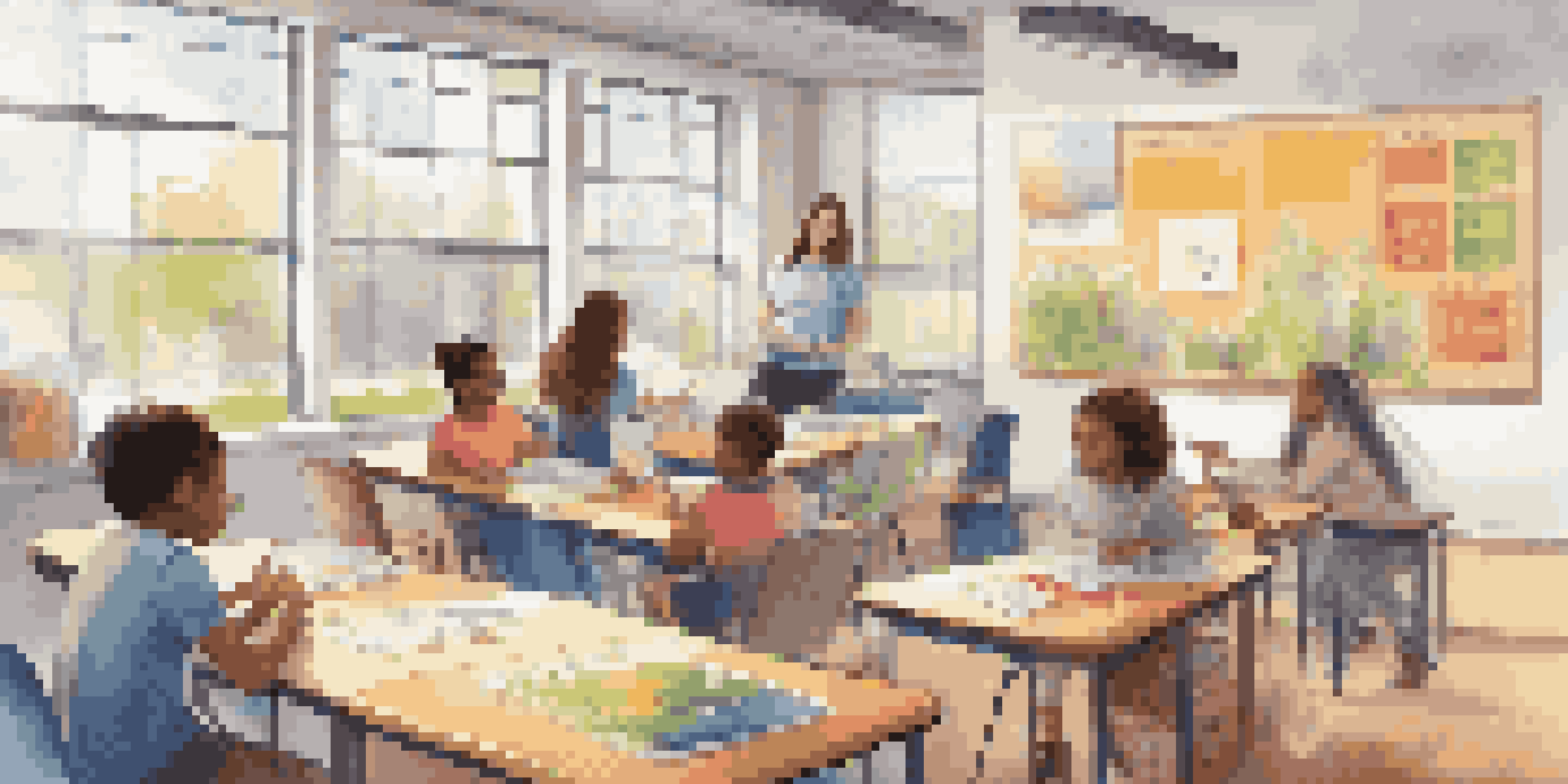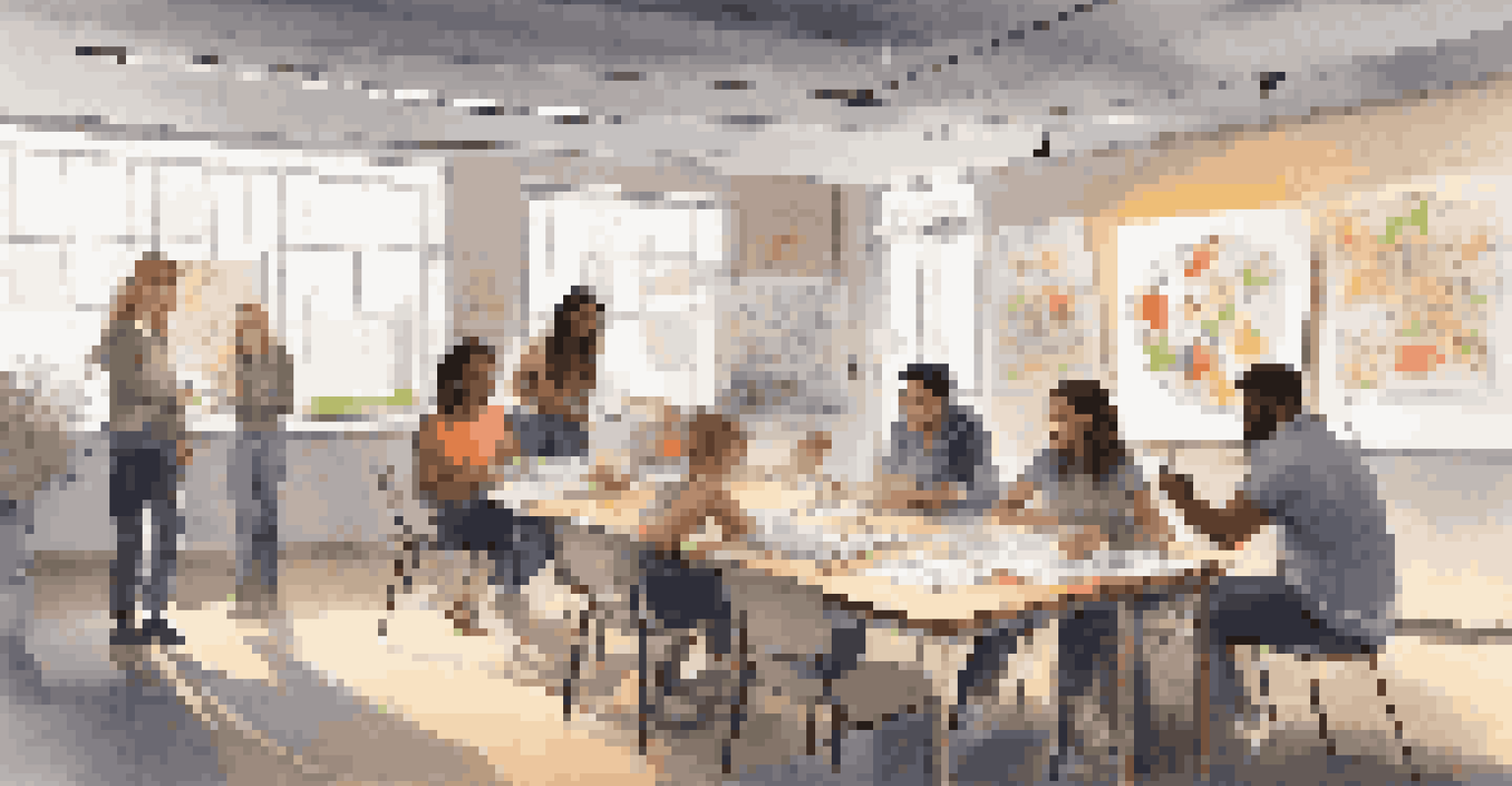Personalized Learning and the Development of Critical Thinking

Understanding Personalized Learning and Its Importance
Personalized learning tailors education to meet the unique needs of each student. By focusing on individual strengths and weaknesses, educators can create a more engaging learning environment. This approach empowers students to take charge of their own learning, making it a vital strategy in modern education.
Personalized learning is not a one-size-fits-all approach; it’s about recognizing and valuing the unique abilities and interests each student brings to the classroom.
In a personalized learning framework, students can set their own pace and choose paths that resonate with their interests. This flexibility not only fosters motivation but also encourages deeper exploration of subjects. When students feel connected to their learning, they are more likely to develop critical thinking skills that extend beyond the classroom.
Ultimately, personalized learning is about recognizing that every student is different. By valuing these differences, educators can cultivate a diverse array of thinkers who are prepared to tackle complex problems in their lives and careers.
The Link Between Personalized Learning and Critical Thinking
Critical thinking involves analyzing information, solving problems, and making informed decisions. Personalized learning provides an ideal environment for these skills to flourish, as students are encouraged to think independently. This independence fosters a mindset where questioning and curiosity become integral parts of the learning process.

When students are engaged in personalized learning, they often encounter real-world scenarios that require critical analysis. For instance, working on projects that relate to their interests helps them see the relevance of their studies in everyday life. Such connections not only enhance their understanding but also promote a critical approach to evaluating information.
Personalized Learning Enhances Engagement
By tailoring education to individual strengths, personalized learning fosters a more engaging and motivating environment for students.
Moreover, personalized learning encourages collaboration among peers, facilitating discussions that challenge assumptions. Through these discussions, students learn to articulate their thoughts, listen to differing perspectives, and refine their ideas—key components of critical thinking.
Role of Technology in Personalized Learning
Technology plays a crucial role in facilitating personalized learning experiences. Digital platforms can track student progress, allowing educators to customize lessons based on individual performance. This data-driven approach ensures that each student receives the support they need to excel.
Critical thinking is the key to unlocking the potential of personalized learning, allowing students to engage deeply and meaningfully with their education.
Additionally, technology offers a wealth of resources that cater to various learning styles. For example, interactive simulations and educational games can make complex concepts more accessible. By leveraging these tools, teachers can create an engaging environment that stimulates critical thinking.
However, it's essential to strike a balance between technology and traditional teaching methods. While digital tools can enhance learning, they should complement—not replace—hands-on experiences and face-to-face interactions. This balance is vital for nurturing well-rounded critical thinkers.
Creating a Supportive Learning Environment
A supportive learning environment is essential for students to thrive in personalized learning. This includes fostering a culture of trust, where students feel safe to express their thoughts and take intellectual risks. When students know their contributions are valued, they are more likely to engage meaningfully with the material.
Teachers can enhance this environment by providing constructive feedback, encouraging self-reflection, and promoting a growth mindset. For instance, praising effort rather than innate ability helps students understand that skills can be developed through hard work. This perspective is crucial for developing resilience and critical thinking.
Critical Thinking Thrives in Flexibility
Personalized learning encourages independent thinking and real-world problem-solving, essential for developing critical thinking skills.
Moreover, incorporating collaborative activities can further strengthen the learning community. Group projects and peer reviews not only build social skills but also challenge students to think critically about their own and others' ideas. This collaboration fosters a deeper understanding of concepts and enhances critical thinking.
Assessment Strategies in Personalized Learning
Assessments in personalized learning should reflect the unique journey of each student. Traditional tests often fail to capture a learner's progress and understanding. Instead, formative assessments—like portfolios and self-assessments—provide a more comprehensive view of a student's critical thinking capabilities.
By using diverse assessment methods, educators can identify specific areas where students may need further support. For example, a student who excels in project-based assessments might struggle with standardized testing. Understanding these differences allows teachers to tailor their instruction accordingly.
Furthermore, involving students in the assessment process can empower them to take ownership of their learning. Encouraging self-evaluation fosters critical thinking, as students learn to assess their strengths and areas for improvement. This reflective practice is key to developing lifelong learners.
Challenges of Implementing Personalized Learning
While personalized learning offers many benefits, there are challenges to consider. One significant hurdle is the need for adequate training for educators. Teachers must feel comfortable using new technologies and adapting their teaching methods to meet diverse student needs.
Additionally, resource constraints can pose a challenge. Not all schools have access to the technology or materials required to implement personalized learning effectively. This disparity can create inequalities in education, hindering some students' opportunities to develop critical thinking skills.
Technology Supports Individual Growth
Digital tools facilitate personalized learning by tracking progress and providing resources that cater to various learning styles.
However, with the right support and resources, these challenges can be overcome. Schools can invest in professional development and collaborate with communities to gather necessary resources. By addressing these issues, personalized learning can become an accessible and effective approach for all students.
The Future of Personalized Learning and Critical Thinking
As education continues to evolve, the future of personalized learning looks promising. With advancements in technology and a growing recognition of diverse learning needs, personalized approaches are becoming more mainstream. This shift is crucial for preparing students to navigate an increasingly complex world.
Critical thinking will remain a cornerstone of education, as it equips students with the skills needed to analyze information and make informed choices. In this context, personalized learning can play a vital role in developing these skills by providing tailored experiences that challenge students to think deeply.

Ultimately, the collaboration between personalized learning and critical thinking will shape the next generation of learners. By fostering an environment where students can explore, question, and innovate, we can prepare them to become the critical thinkers and problem solvers of tomorrow.